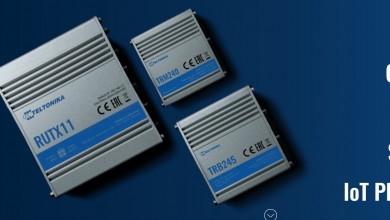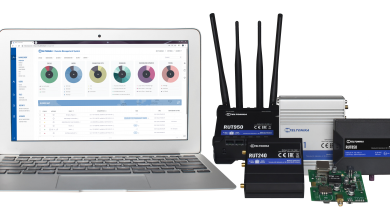
The telematics market is growing, fuelled by the continuing drive towards the Internet of Things, 5G network connectivity and increasingly cheaper connections to satellite systems. IT Europa has been attending this week’s Telematics Vilnius event in Lithuania to find out about the opportunities for channel partners.
Telematics vendors and partners from around the world were present in the Baltic country to chew the fat on how the industry was growing, and coping, amid the cost of living crisis, chip shortages, and, of course, a European war.
The region has a rich history in communications development, with the likes of Ericsson and Nokia having grabbed all the early attention when it came to the first commercial machine-to-machine (M2M) connectivity from the 1990s onwards.
Other key players, however, have emerged since, including those operating in the Baltics and in countries like Belarus, Russia, Poland and Ukraine. IT Europa spoke to some of them, and also some of their partners operating in more Western climbs.
Antanas Šegžda is CEO of Teltonika Telematics, a significant global supplier of hardware modules that enable telemetry in vehicles, industrial sites and many other segments.
He said of his company’s go-to-market: “We have 1,500 partners who supply the big car brands, for instance, acting as a middle-man to get our products in the field. Most of our business is done through the channel, although some manufacturers have their own commercial buying and technology services units, which effectively means we are selling direct to some brands.”
On the chip crisis, Šegžda said the firm had to make big development adjustments. “Over the last year we have had to spend most of our research and development resources dealing with chip shortages, with 80% of our R&D budget going on re-designing components and sourcing components from elsewhere to mitigate shortages. We have effectively lost a full year in new product development.”
As for competitors, Šegžda cited several firms in the US and Asia, as well as spin-off companies formed by ex-Teltonika staff in Lithuania. Asked why his region had created a hotbed of telematics firms, Šegžda said: “Our founder originally worked with Nokia on developing M2M systems, and then Nokia effectively switched off its dedicated M2M unit. But we recognised that IoT was the future and scaled up our efforts.
“As a result of getting in early and focusing on international expansion, and serving the needs of customers of any size, we have taken advantage of the opportunities out there.”
On potential competition from bigger players in a cloud-driven world, he said: “Who knows, you may see the likes of Google, Amazon and Huawei taking a keener interest in our market. But you can’t create a box with all the right features that quickly.”
It just so happened, that this week, Google Cloud announced it was closing its IoT Core unit - which provides device deployment and management services - and that it would be helping existing customers to migrate to alternative specialist providers.
On newer market segments, outside the car tracking space, that Teltonika is now focusing on, Šegžda cited industrial routers for ISPs, security services companies and banks’ ATMs, for instance; mobility systems to track bikes and scooters; energy solutions for the likes of electric vehicle charging points; and telemedicine systems.
On opportunities for “TSPs” (telematics service providers), Šegžda confirmed: “Different markets have different customers, so we need different partners in the IoT sector to help us reach them.”
As stated, IT Europa spoke to other players in the field, read the story that follows this one...

